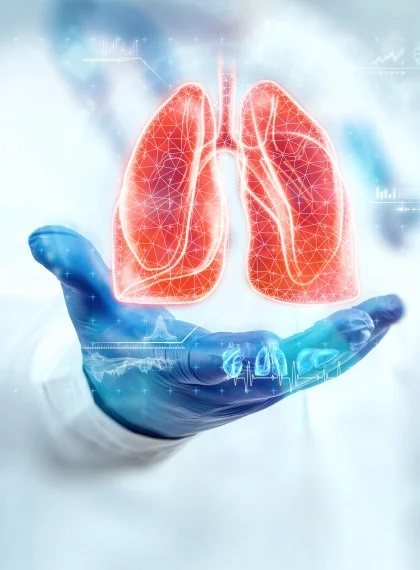Every breath, a struggle. Respiratory illnesses have become a leading cause of mortality worldwide, impacting people in bustling cities choked with smog to rural communities facing environmental degradation. This silent crisis isn't inevitable. While air pollution from vehicles and industries hangs heavy in the air, aggravating existing conditions like asthma and COPD, there's hope.
Our fast-paced world presents a multitude of challenges to our lungs. Even our homes can harbor unseen threats – poor ventilation trapping allergens like dust mites, and fumes from cooking irritating our respiratory systems. Smoking remains a stubborn adversary, despite widespread awareness of its dangers. Workers in certain professions face additional risks, inhaling hazardous substances that scar their lungs over time. Climate change adds another layer of concern, promising to worsen air quality, increase allergens with longer growing seasons, and create more extreme weather events that can trigger respiratory problems.
But amidst these challenges, a path to a healthier future for our lungs exists. By working together on multiple fronts, we can create a world where everyone breathes a little easier. Implementing stricter emission standards and promoting clean energy sources like solar and wind power are crucial steps in combating air pollution. Investing in public transportation and encouraging active commuting can further reduce emissions and keep our air cleaner. Comprehensive tobacco control policies, including taxation and smoke-free legislation, can help curb smoking rates significantly.
The Growing Burden of Respiratory Diseases:
Millions suffer in silence. Respiratory diseases, like asthma, COPD, and lung cancer, cast a long shadow over global health. According to the World Health Organization (WHO), these conditions claim countless lives every year, ranking among the leading causes of mortality worldwide. The impact goes beyond individual well-being, placing a significant strain on healthcare systems and societies as a whole.
Air Pollution
Millions breathe in danger every day. Air pollution, a cocktail of harmful pollutants like particulate matter and nitrogen dioxide, is a major culprit. It aggravates existing respiratory conditions like asthma and COPD, increases the risk of lung cancer, and even contributes to respiratory infections.
Smoking
Despite widespread knowledge of its dangers, smoking remains a significant threat. Cigarettes are a leading cause of respiratory diseases, including lung cancer and COPD. Secondhand smoke exposure further expands this danger zone, harming non-smokers, especially children.
Indoor Air Quality
Our homes can harbor unseen threats. Poor ventilation, dust mites, mold, and even cooking fumes can irritate our lungs and worsen existing problems. Maintaining good indoor air quality is crucial for optimal respiratory health.
Occupational Hazards
Certain professions expose workers to hazardous substances and environmental pollutants – miners, construction workers, and agricultural workers being prime examples. These exposures can lead to occupational lung diseases like pneumoconiosis, highlighting the need for proper safety measures in these industries.
Climate Change
Climate change throws another curveball. It's expected to worsen many of the factors already impacting respiratory health. Rising temperatures, changing weather patterns, and increased air pollution all contribute to the problem. Climate change may also lead to a rise in respiratory infections and worsen existing conditions.
Solutions for Respiratory Health:
Combating Air Pollution:
This fight requires a multi-pronged approach. Implementing stricter emission standards for vehicles and industries is crucial. Let's promote clean energy sources like solar and wind power to reduce reliance on fossil fuels. Investing in public transportation and encouraging active commuting through cycling and walking can significantly reduce air pollution.
Stubbing Out Smoking for Good:
Comprehensive tobacco control policies are essential. Raising tobacco taxes discourages smoking, while smoke-free legislation protects everyone from harmful secondhand smoke. Making smoking cessation programs readily available empowers smokers to quit and breathe freely.
Cleaning Up Our Indoor Air:
Simple measures can make a big difference. Proper ventilation ensures fresh air circulation, while air purifiers help remove harmful pollutants. Reducing indoor allergens like dust mites and mold through regular cleaning and moisture control protects our lungs. These steps are especially crucial for vulnerable populations like children and the elderly.
Protecting Workers' Lungs:
Occupational health and safety regulations are our armor. These regulations should mandate worker protection from hazardous exposures. Providing proper training and protective equipment empowers workers to be aware of risks and take necessary precautions. Regular workplace air quality monitoring ensures a safe breathing environment.
Knowledge is Power
Raising public awareness about the importance of respiratory health is vital. Promoting healthy lifestyle choices like regular exercise and a balanced diet strengthens our lungs. Educating the public about the dangers of smoking and exposure to environmental pollutants empowers individuals to make informed choices and take control of their respiratory well-being.
The Role of Lungs and Chest Specialists:
Lungs specialists near you and chest specialists, like those in Mumbai, play a crucial role in addressing respiratory health challenges. These healthcare professionals are your partners in lung health. Whether you're experiencing respiratory symptoms or simply want to learn more about keeping your lungs healthy, don't hesitate to seek professional guidance. Taking charge of your respiratory health is an investment in a longer, healthier life. Breathe easy – you've got this!
Conclusion:
Our breath, the seemingly effortless act of inhaling and exhaling, is a foundation of our well-being. Yet, in today's world, this vital function faces a multitude of challenges. Air pollution, a toxic cocktail of pollutants from vehicles and industries, hangs heavy in our lungs, aggravating asthma and COPD and raising the spectre of lung cancer.
But amidst these challenges, there's hope. Implementing stricter emission standards and promoting clean energy sources like solar and wind power can combat air pollution.
Investing in public transportation and encouraging active commuting can further reduce emissions and keep our air cleaner. Comprehensive tobacco control policies, including taxation and smoke-free legislation, can help curb smoking rates. Simple measures like proper ventilation and air purifiers can significantly improve indoor air quality, especially for vulnerable populations like children and the elderly.
By working with lung and chest specialists, implementing these solutions at individual, community, and societal levels, we can ensure a future where everyone breathes a little easier.


No comments yet